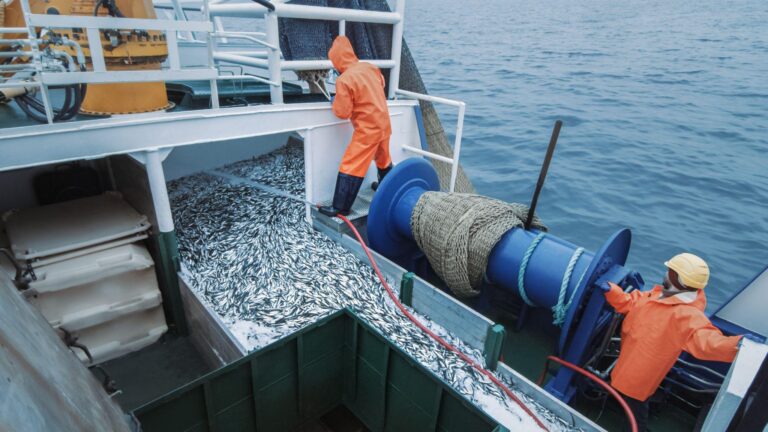Maritime occupations are physically demanding, requiring workers to perform repetitive tasks that can lead to a variety of injuries. Among the most common of these are repetitive use injuries, which pose a significant risk to the well-being and livelihood of maritime workers. These injuries occur as a result of prolonged, repetitive motions and strain on specific parts of the body, often exacerbated by the demanding nature of their work.
When faced with these injuries, maritime workers may find themselves grappling with physical, emotional, and financial burdens. However, it’s important for them to understand that they have legal options available to seek compensation and support. By exploring their rights under maritime and admiralty laws, workers can potentially recover damages for medical expenses, lost wages, and other harms resulting from their injuries.
This article aims to provide an overview of the legal options available to maritime workers who have suffered repetitive use injuries. It will delve into the specifics of maritime laws, potential avenues for legal recourse, and the importance of seeking experienced legal representation to navigate the complexities of these cases.
What Types of Repetitive Use Injuries Are Common in Maritime Occupations?
Maritime occupations involve various physical activities and repetitive tasks, which can lead to specific types of repetitive use injuries. Some common repetitive use injuries among maritime workers include:

- Carpal Tunnel Syndrome – This condition affects the median nerve in the wrist, causing numbness, tingling, and weakness in the hand and fingers. Repetitive motions such as gripping, twisting, and operating tools or equipment can contribute to the development of carpal tunnel syndrome.
- Tendinitis – Tendinitis refers to the inflammation of a tendon, which can occur in various parts of the body. Maritime workers may experience tendinitis in areas like the wrist (e.g., De Quervain’s tenosynovitis), elbow (e.g., tennis elbow or golfer’s elbow), or shoulder due to repetitive lifting, pulling, or reaching motions.
- Back Injuries – Maritime workers often engage in physically demanding tasks involving heavy lifting, bending, and twisting. These activities can strain the muscles, ligaments, and discs in the back, leading to conditions such as herniated discs, muscle strains, or sprains.
- Rotator Cuff Injuries – The rotator cuff is a group of muscles and tendons surrounding the shoulder joint. Repetitive overhead reaching, lifting heavy objects, or performing activities like rope handling can result in rotator cuff injuries, such as tendinitis.
- Epicondylitis – Also known as tennis elbow (lateral epicondylitis) or golfer’s elbow (medial epicondylitis), these conditions involve the inflammation of the tendons in the elbow. Repetitive gripping, lifting, or using hand tools can contribute to the development of epicondylitis.
- Knee Injuries – Maritime workers who frequently climb ladders, step over obstacles, or perform tasks that involve repetitive kneeling or squatting may be at risk of developing knee injuries such as patellar tendinitis or meniscus tears.
It’s important to note that the prevalence and severity of these injuries can vary depending on the specific maritime occupation, the tasks involved, the working conditions, and individual factors.
Can Maritime Employers Be Held Responsible for Causing Worker Repetitive Use Injuries?
Maritime employers can be held as negligent in causing their employees’ repetitive use injuries under certain circumstances. The following factors may contribute to establishing employer negligence:

- Failure to Provide a Safe Work Environment – Under the Jones Act, maritime employers have a duty to ensure a reasonably safe working environment for their employees. If the employer fails to address potential hazards related to repetitive use tasks, such as by providing ergonomic equipment, implementing safety protocols, promoting rotation of tasks, or conducting regular risk assessments, they may be considered negligent.
- Inadequate Training – Employers have a responsibility to provide proper training to maritime workers, particularly regarding safe work practices, ergonomics, and injury prevention techniques. If the employer fails to provide adequate training or neglects to educate workers on the risks associated with repetitive motions, they may be deemed negligent by the courts.
- Lack of Supervision and Monitoring – Employers should actively supervise and monitor employees’ work activities to ensure compliance with safety procedures. Negligence may occur if employers fail to oversee workers, allowing them to engage in repetitive tasks for excessive periods without breaks.
- Inadequate Response to Employee Complaints – If employees report symptoms, discomfort, or concerns related to repetitive use injuries, employers have a responsibility to respond promptly and take appropriate action. Negligence may arise if employers dismiss or ignore such complaints, leading to worsening injuries or preventable harm.
To pursue a claim against an employer for negligence in causing repetitive use injuries, it is advisable to consult with an attorney experienced in maritime law. They can assess the specific circumstances, gather evidence, and guide affected workers through the legal process to seek compensation for their injuries and losses. Schechter, Shaffer and Harris, L.L.P., is staffed by maritime injury lawyers with years of experience in handling these kinds of cases.
Contact a Jones Act Lawyer at Schechter, Shaffer and Harris, L.L.P.
Our team has recovered hundreds of millions of dollars in damages for seamen and other maritime workers who suffered illness or injury due to the negligence of an employer. We provide legal assistance to workers across the U.S. Call us at 1-800-836-5830 for a free consultation with a maritime injury attorney.







